
Facebook hit with massive fine for providing misleading information about WhatsApp takeover
The European Commission has hit Facebook with a €110 million ($122 million) fine for "providing misleading information about WhatsApp takeover". The Commission previously expressed concern that the social media giant had not correctly communicated planned changes to its privacy policy.
The changes meant that Facebook was able to match data gathered from WhatsApp users to their Facebook account, even though the company said this was not the case. The "proportionate and deterrent fine on Facebook" is designed not only to punish Facebook, but also to send a message to other companies involved in mergers and acquisitions.

Pirated copy of Pirates of the Caribbean 5 used to hold Disney to ransom
Just a couple of weeks since a leak of season five of Orange is the New Black was held to ransom, the same is now happening with the upcoming Pirates of the Caribbean 5. Yesterday Disney CEO Bob Iger revealed that hackers had stolen one of the company's movies, and it has since transpired that it is the upcoming Johnny Depp flick.
Subtitled "Dead Men Tell No Tales", Pirates of the Caribbean 5 is due to hit the big screen next week, and hackers are demanding a ransom from Disney to avert a leak ahead of the official launch. This is the latest move in the world of piracy that shows a marked shift from the previous aim of release groups simply wanting to be the first to push out a decent quality rip of a movie.
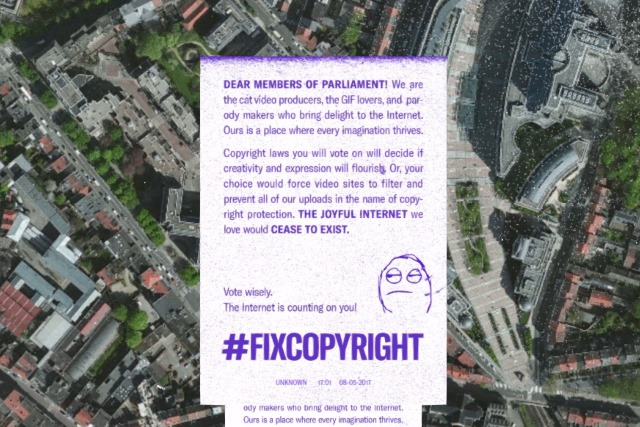
Mozilla's Paperstorm campaign calls for copyright reform to save the internet
Mozilla has teamed up with design studio Moniker and launched a new "digital advocacy tool" called Paperstorm with the aim of modernizing copyright laws in Europe. The tool makes it easy for ordinary internet users to carpet bomb European lawmakers with virtual leaflets demanding change.
The campaign is looking to drop millions of leaflets on cities around Europe to send a message to EU policymakers. The timing is important because copyright laws are due to undergo amendments, and proposals need to be in by the end of the year. Mozilla says that existing rules are outdated, and now is the time to make sure the laws are appropriate to modern needs.
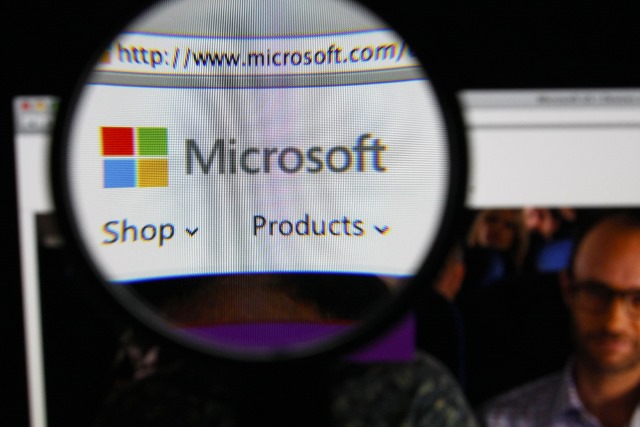
[Updated] Microsoft transparency report reveals first National Security Letter and shows doubling of FISA orders
Microsoft has published its latest transparency report and, for the first time, disclosed the contents of a National Security Letter it received. In addition to the debut appearance of such a letter in the report, Microsoft also reveals that in the reported period in 2016 the number of FISA orders more than doubled compared to the previous period.
As with previous reports, Microsoft is not permitted -- for reasons best known to the US government -- to reveal precise numbers when talking about the number of official requests for data it has received. As such, we know that in the most recent reporting period, it received between 1,000 and 1,499 FISA orders, up from 0-499.

Investigation finds Facebook mods fail to remove illegal content such as extremist and child porn
That Facebook is fighting against a tide of objectionable and illegal content is well known. That the task of moderating such content is a difficult and unenviable one should come as news to no one. But an investigation by British newspaper The Times found that even when illegal content relating to terrorism and child pornography was reported directly to moderators, it was not removed.
More than this, the reporter involved in the investigation found that Facebook's algorithms actively promoted the groups that were sharing the illegal content. Among the content Facebook failed to remove were posts praising terrorist attacks and Islamic State, and others calling for more attacks to be carried out. Failure to remove illegal content once reported is, under British law, a crime in itself.

Government drops demands to unmask @ALT_USCIS after Twitter files lawsuit
Just one day after Twitter filed a lawsuit to block the US government from forcing it to reveal the identity of who is behind the @ALT_USCIS account, the government has dropped its request.
News of the lawsuit saw the account's follower count more than quadruple as Twitter users jumped to see what was being posted by what are believed to be United States Citizenship and Immigration Services employees. As a result of the government dropping its request, Twitter has stopped the lawsuit.
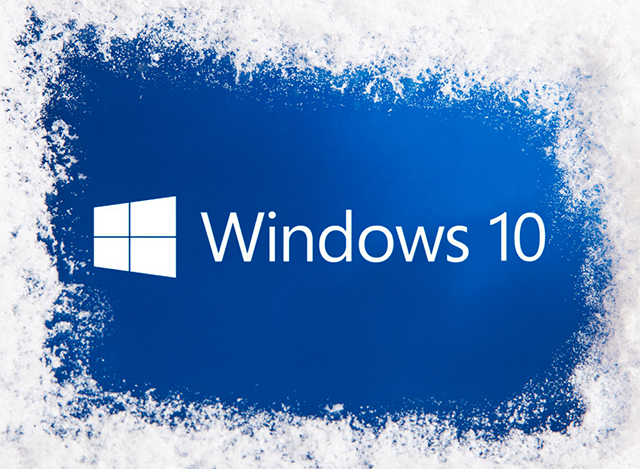
Microsoft hit with lawsuit alleging Windows 10 upgrades 'destroyed people's data and damaged PCs'
Windows 10 has certainly not been short of controversy. Between forced upgrades, telemetry and privacy concerns, and the introduction of increasing numbers of ads, Microsoft has been on the receiving end of a good deal of criticism for the latest version of its operating system. And the trouble is not over.
With the launch of Windows 10 Creators Update just around the corner, Microsoft faces a lawsuit from three people from Illinois who claim that the upgrade not only resulted in data loss, but also damaged their computers. The lawsuit makes reference to the difficulty many users found in declining the offer of upgrading to Windows 10.

Who's liable for decisions AI and robotics make?
Reuters news agency reported on February 2017 16 that "European lawmakers called [...] for EU-wide legislation to regulate the rise of robots, including an ethical framework for their development and deployment and the establishment of liability for the actions of robots including self-driving cars."
The question of determining "liability" for decision making achieved by robots or artificial intelligence is an interesting and important subject as the implementation of this technology increases in industry, and starts to more directly impact our day to day lives.

Facebook, Google and Twitter could face EU legal action for unfair terms and conditions, and failing to tackle scams
Having expressed concerned about privacy in Windows 10 and the scanning of Yahoo emails, the European Commission is now turning its attention to Facebook, Google+ and Twitter. The commission is concerned about a rising number of complaints from people who have fallen victim to scams on social media, and being subjected to terms and conditions that are incompatible with European law.
Having already written to the three companies back in November, the European Commission, along with EU consumer authorities, met to discuss how they will move forward. The commission says that if the proposals are unsatisfactory, "enforcement action" may be required.
The dangers of legacy email archives
To everyone who continues to own a legacy email archive -- beware! You are sitting on a ticking time bomb.
By legacy email archives, I am referring to an email archive that was designed in the early 2000’s and is likely deployed on premises; but in some cases is a hosted email archive solution. A legacy email archive presents three major risks to your IT infrastructure and organization as a whole.

Huge database leak reveals 1.37 billion email addresses and exposes illegal spam operation
A faulty backup has inadvertently exposed the entire working database of notorious spam operator River City Media (RCM). In all, the database contains more than 1.37 billion email addresses, and for some records there are additional details such as names, real-world addresses, and IP addresses. It's a situation that's described as "a tangible threat to online privacy and security."
Details about the leak come courtesy of Chris Vickery from macOS security firm MacKeeper who -- with a team of helpers -- has been investigating since January. River City Media's database ended up online thanks to incorrectly-configured Rsync backups. In the words of Vickery: "Chances are you, or at least someone you know, is affected."
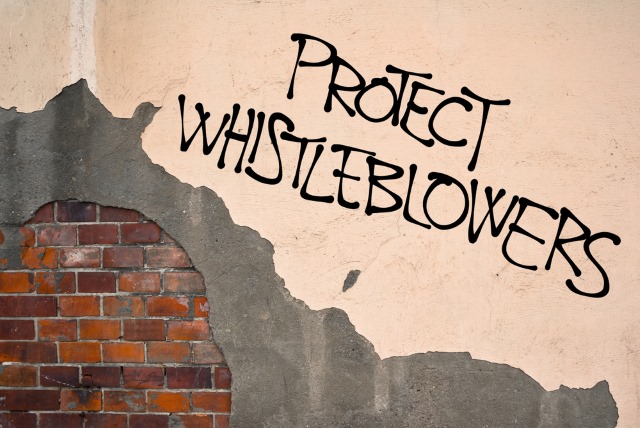
Study shows that whistleblowers need greater protection due to surveillance and anti-privacy tech
A study by London University's Institute of Advanced Legal Studies (IALS) shows that journalists find it harder to protect their sources in the digital age, and suggests that whistleblowers should be afforded greater legal protection. The arrival of Donald Trump on the scene has created a greater sense of urgency.
The report, entitled "Protecting Sources and Whistleblowers in a Digital Age", says that monitoring of phone calls as well as online surveillance means it is now easier to identify sources that would otherwise have remained anonymous. People like Edward Snowden and Julian Assange have brought whistleblowing into the spotlight in recent years, and proposed changes to the UK's Official Secrets Act that would deny using "public interest" as a defense, coupled with the increased interest in surveillance mean that this is a hot topic once again.
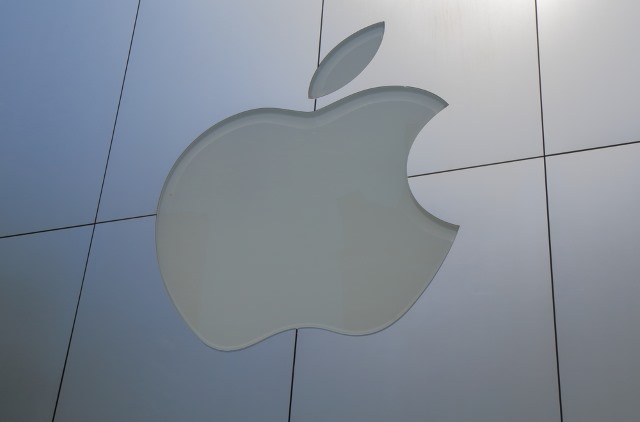
Apple appeals against $14 billion European tax bill with 14-point legal plea
Last year Apple was hit with $14 billion tax bill after the European Commission decided the company had enjoyed "illegal tax benefits" in Ireland. Apple said that it would appeal against the ruling which Tim Cook described as "maddening", but Europe is showing increased interest in cracking down on technology companies taking advantage of tax loopholes.
The appeal has now been placed, and Apple is asking the appeal court to either partly overturn the Commission's ruling and pay its legal fees, or completely overturn the ruling. The fact that Apple is setting forth two possible outcomes would indicate that it feels a full annulment of the original ruling is unlikely, but it has submitted a 14-point appeal.

Kim Dotcom can be extradited to the US
Kim Dotcom, the larger-than-life character behind file-sharing services Megaupload and Mega, can be extradited from New Zealand to the US. The German national has taken up permanent residency in New Zealand and has been fighting calls for him to face the US legal system.
The judgement came as part of an appeal to a previous ruling which was heard back in September. While the judge today, on the face of things, has ruled against Dotcom, the court case could yet go in favor of him due to various technicalities.

House of Representatives approves Email Privacy Act requiring warrants to search email and data
The Email Privacy Act (HR 387) has passed through the House of Representatives for the second time. It's an attempt to update the now-ancient Electronic Communications Privacy Act (ECPA) from 1986 which gave cause for concern as it grants the government the ability to access emails and data older than 180 days which is stored on third-party servers without the need for a warrant.
The Email Privacy Act changes that. Privacy advocates are currently celebrating the fact that the updated Act has been approved by the House, but it now needs to pass through the Senate -- where it already faltered last year. Google is among those to welcome the Act's progress.
